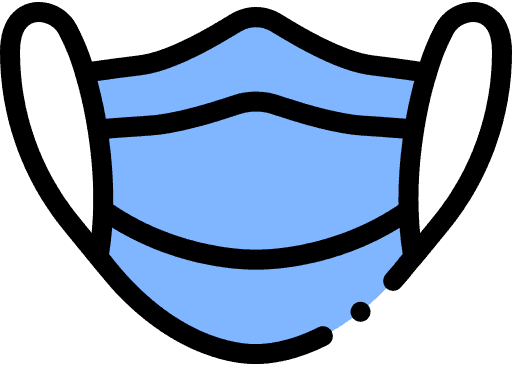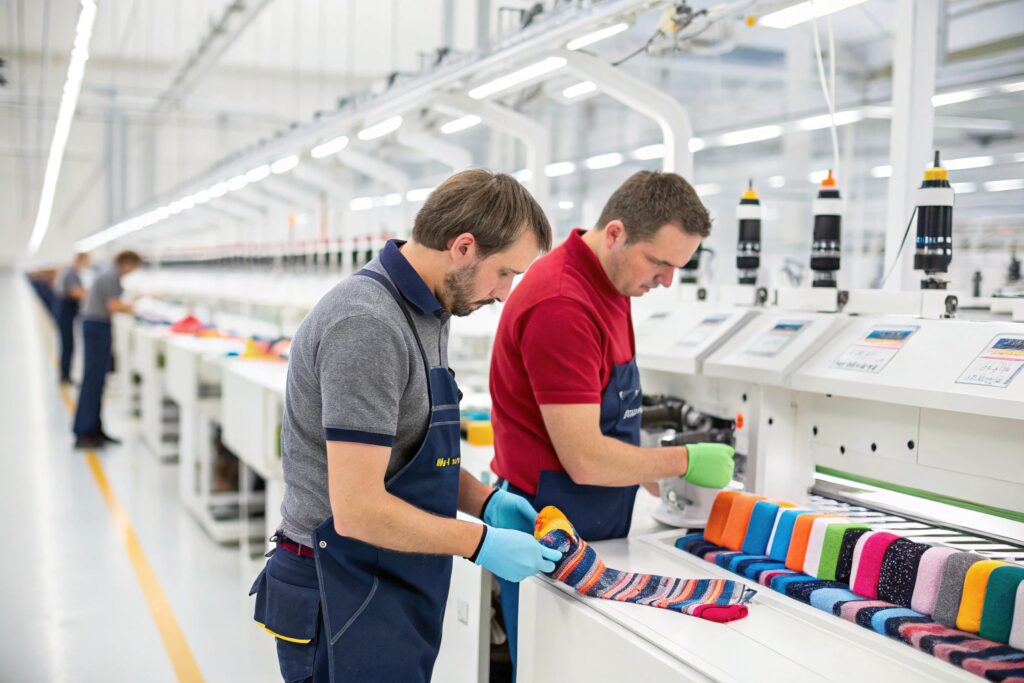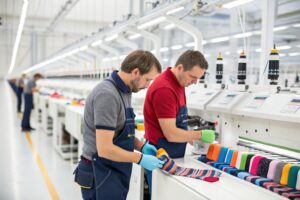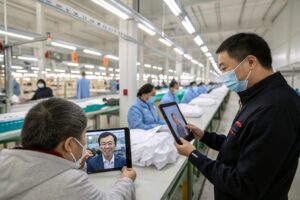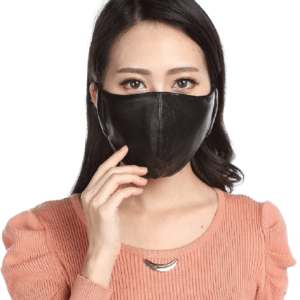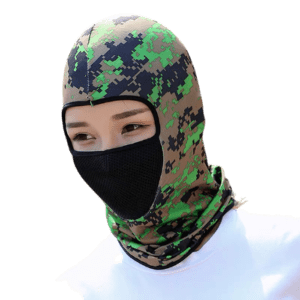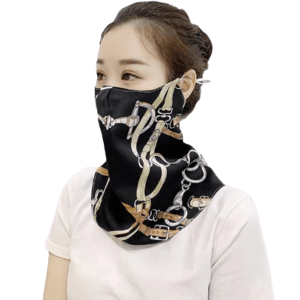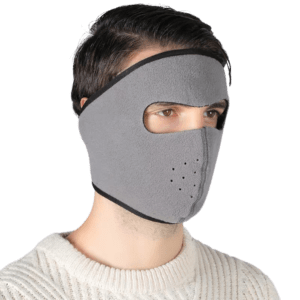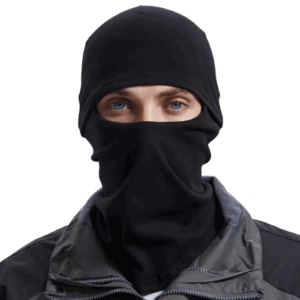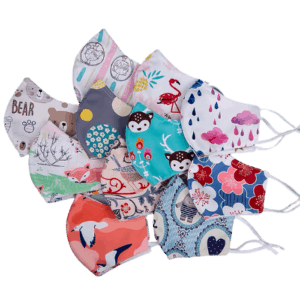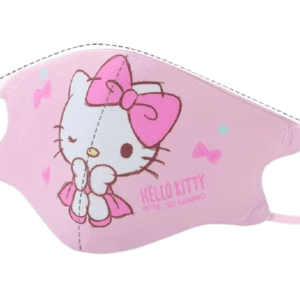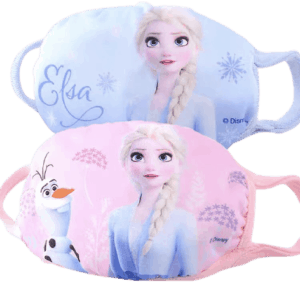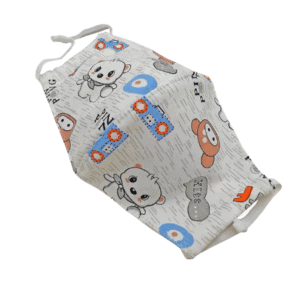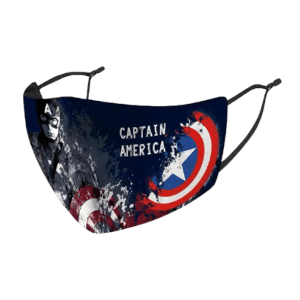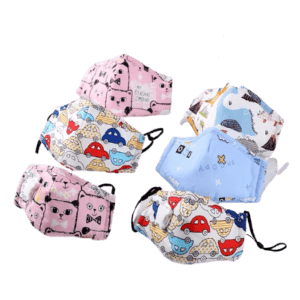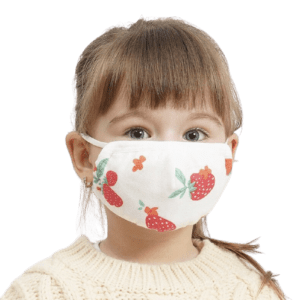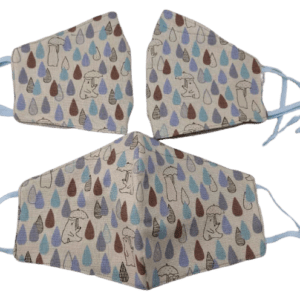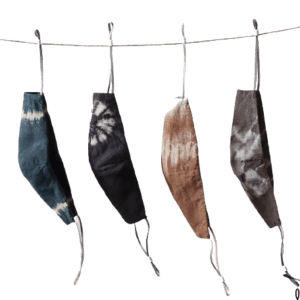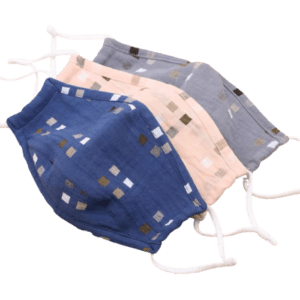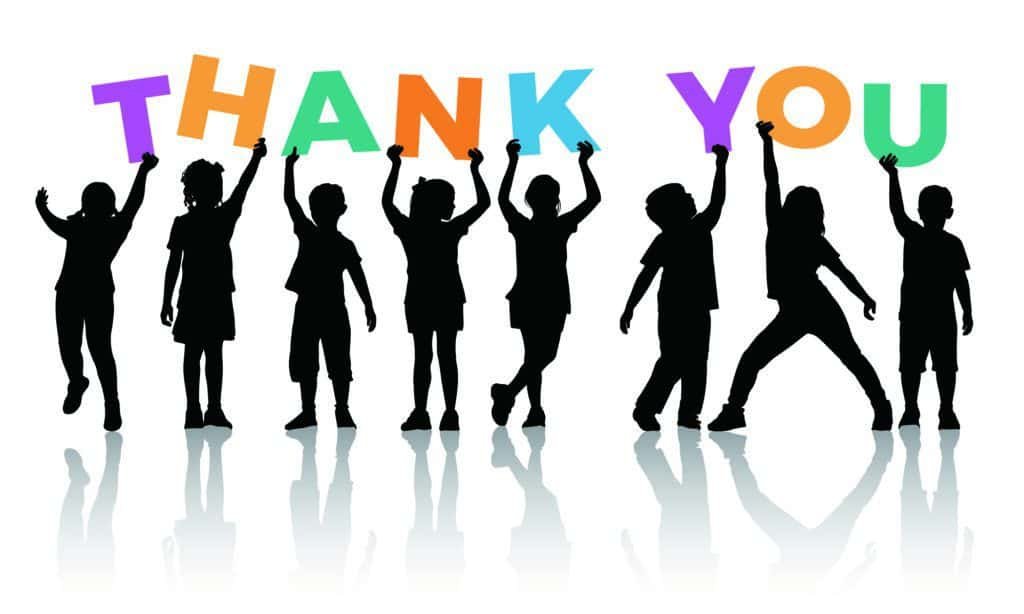European brands are known for strict standards, sophisticated design needs, and ethical expectations. When sourcing socks, one requirement stands above all: EU certification.
EU-certified sock manufacturers offer guaranteed compliance, material safety, and sustainable practices—key elements fashion buyers and retailers seek when choosing production partners.
If you're a sourcing director or an independent brand owner wondering how to ensure product quality, avoid import rejection, or meet retailer expectations, this article will help you understand why partnering with EU-certified suppliers is more than a checkbox—it's a strategy for long-term success.
What Is EU Certification and Why Does It Matter?
Recraft指令--Illustrate a close-up of EU compliance tags being attached to neatly packed socks by a technician in a modern factory, showing conformity and regulation adherence, without text on the tags.
EU certification isn’t just a stamp—it’s proof of trust.
EU certification for sock manufacturers includes meeting CE, REACH, and OEKO-TEX® standards. These certifications ensure socks are safe, sustainable, and ethically produced.
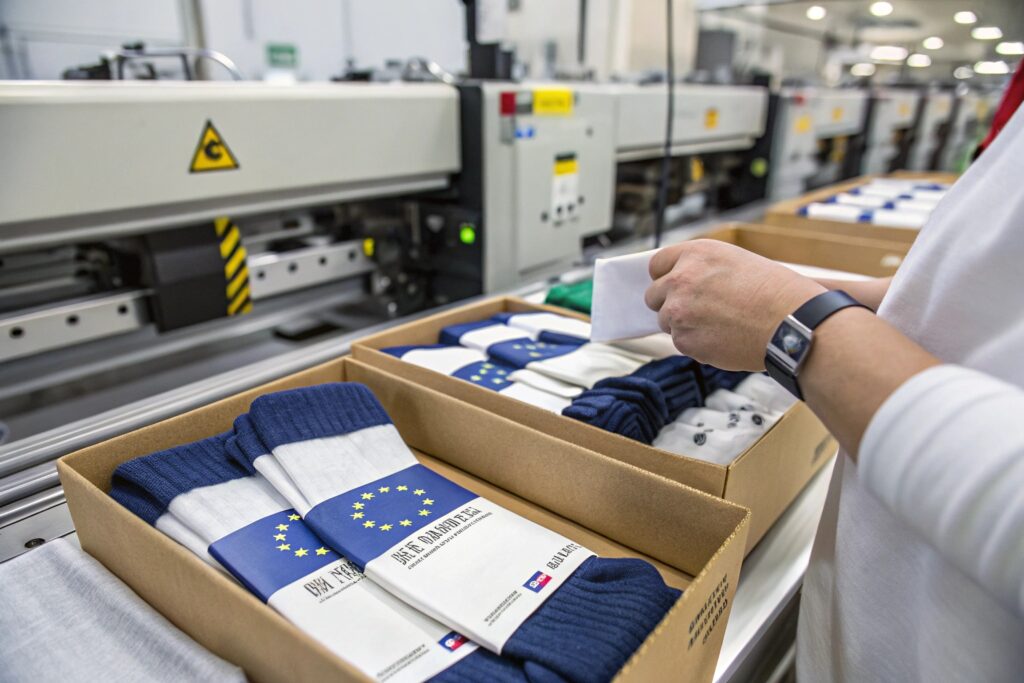
What Are the Key Certifications European Brands Look For?
European buyers often require several overlapping certifications:
| Certification | What It Covers | Why It Matters |
|---|---|---|
| OEKO-TEX® Standard 100 | Tests for harmful substances | Guarantees skin-safe materials |
| CE Marking | EU safety regulations | Required for many consumer goods |
| REACH Compliance | Chemical registration and safety | Ensures sustainable and legal production |
Certifications are not one-time approvals. Re-certification happens annually, and only audited factories maintain their rights to display the label. Brands trust these audits because they are often conducted by independent, third-party organizations.
Are These Certifications Legally Required?
Not all EU certifications are legal mandates—but nearly all are commercial necessities. While socks don’t require CE marking like electronics do, REACH and OEKO-TEX® standards are often listed in retail requirements, especially for babywear and performance socks.
How Does EU Certification Improve Product Quality?
Quality control begins long before the socks hit the shelf.
EU-certified manufacturers apply stricter internal quality control systems, from fiber testing to anti-shrink and anti-fade durability tests.
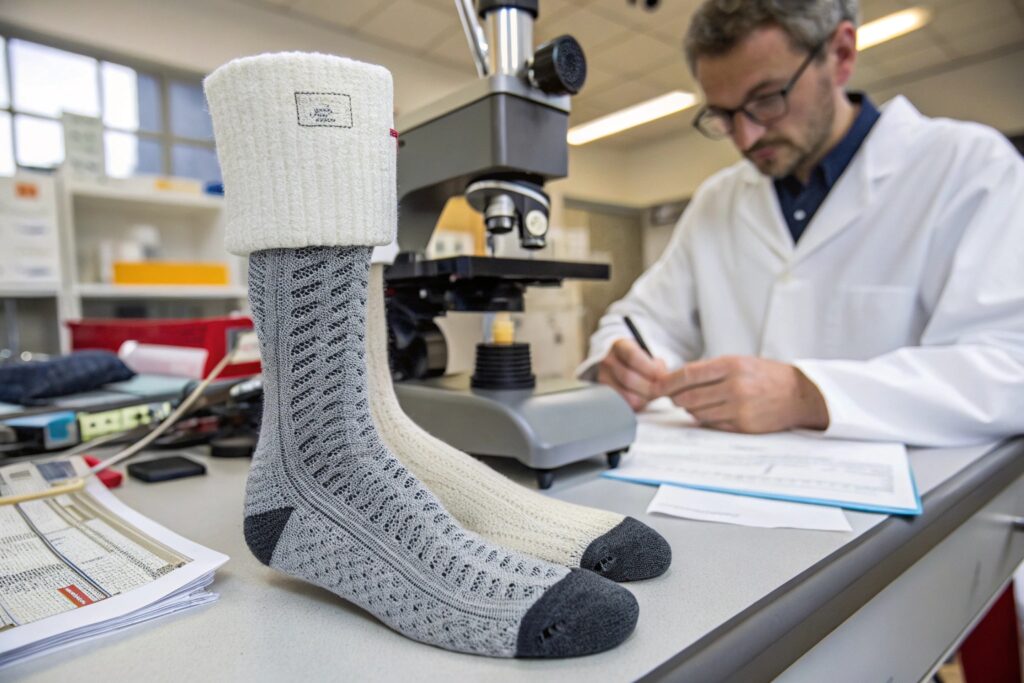
What Material Tests Do Certified Factories Perform?
EU-certified manufacturers invest in in-house or partnered labs to perform:
- Colorfastness tests (to ensure no bleeding)
- Shrinkage testing (especially important for cotton-rich socks)
- Fiber composition analysis
- Abrasion resistance
- Moisture-wicking performance tests (for sport socks)
These tests reduce returns and improve end-user satisfaction.
How Does Certification Affect Brand Reputation?
Imagine a buyer in Berlin or Paris receives socks that fade or shrink. Even if it’s a supplier issue, the end-customer blames the brand. EU certification gives brands legal and marketing grounds to show they’ve chosen safe, reliable manufacturing.
Do Certified Sock Manufacturers Support Ethical Supply Chains?
Recraft指令--Create an ethical factory floor scene where workers are smiling and working in fair conditions, producing eco-friendly socks with natural light. Faces must not be distorted.
More than ever, European brands are held accountable for how their products are made.
EU-certified sock manufacturers must prove ethical sourcing, fair labor conditions, and reduced environmental impact.
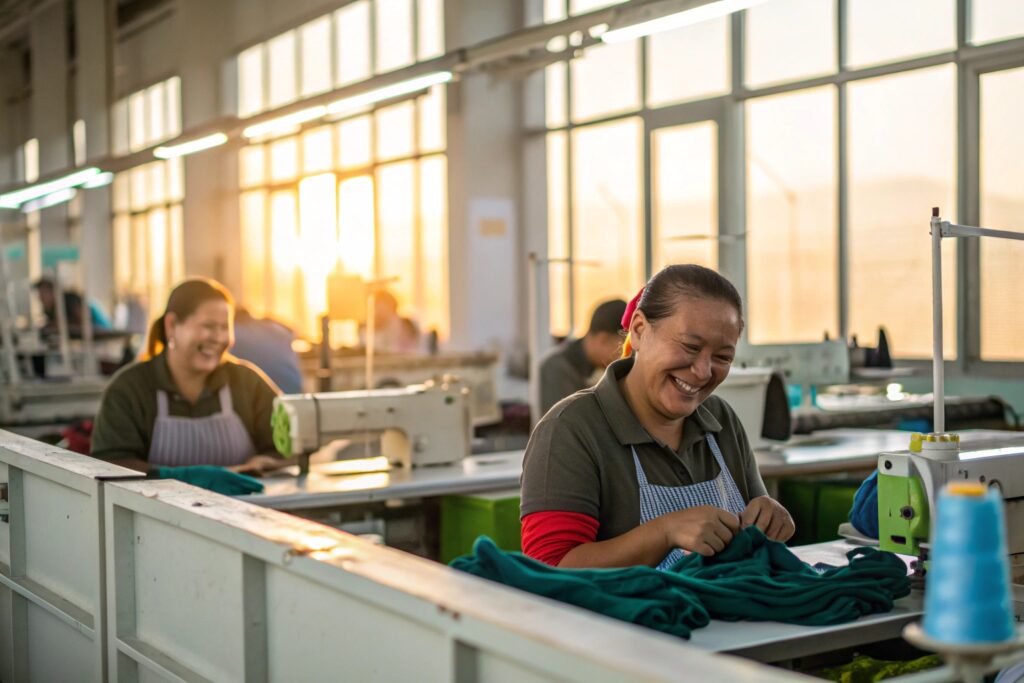
What Social Compliance Standards Are Linked to Certification?
Many EU certification programs incorporate or link to social audits:
- BSCI (Business Social Compliance Initiative)
- SEDEX (Supplier Ethical Data Exchange)
- SA8000 (Social Accountability)
These ensure that:
- Workers are paid fairly and treated ethically
- No child labor is used
- Factories are environmentally conscious
Can These Certifications Be Used for Marketing?
Absolutely. Ethical certification badges on packaging or websites are powerful marketing tools. Many large retailers like Decathlon, H&M, and Zalando now require factory compliance as part of their vendor onboarding.
What Are the Logistics and Customs Benefits of Using EU-Certified Suppliers?
Recraft指令--Render a modern EU customs checkpoint with boxes of socks labeled as EU-certified being smoothly cleared through customs, showcasing speed and organization.
Sourcing from certified suppliers makes logistics smoother.
EU certification aligns with customs documentation, speeds clearance, and reduces regulatory risks when shipping into the European market.
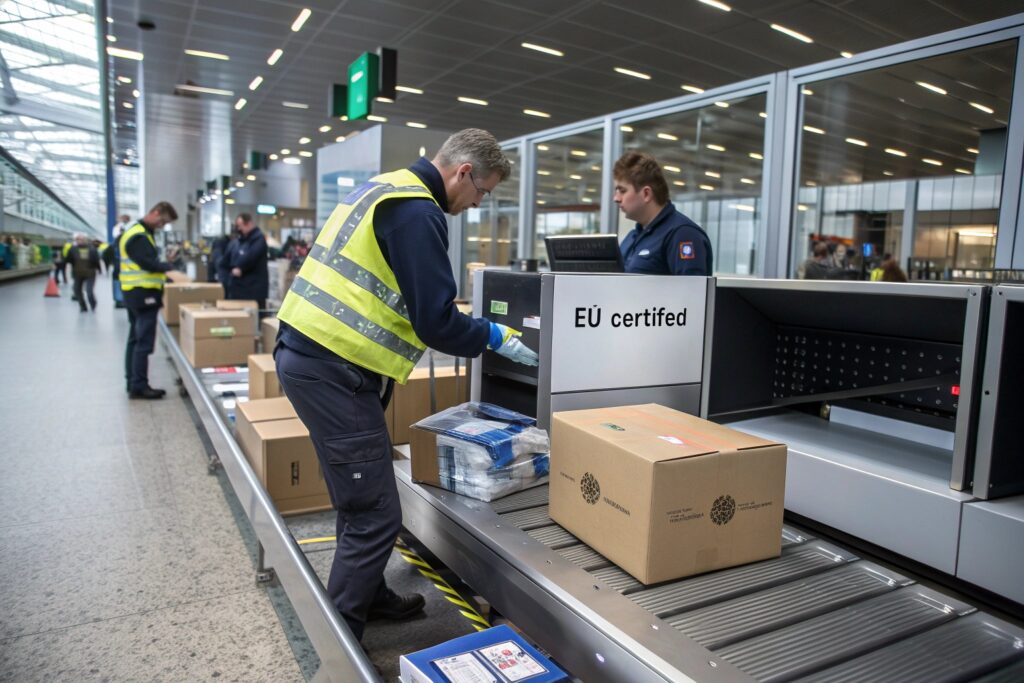
How Does Certification Impact Import Procedures?
When customs officials see OEKO-TEX® or REACH documentation:
- Clearance is faster
- Inspections are reduced
- Delays are minimized
Uncertified shipments may trigger extra documentation demands, lab testing, or even product seizure.
Is Certification Recognized Outside Europe?
Yes. Countries like the U.S., Canada, and Japan recognize REACH or OEKO-TEX® as trustworthy safety indicators. Using EU-certified sock manufacturers gives your brand global legitimacy, not just regional compliance.
Conclusion
For European brands, certification is not about bureaucracy—it’s about protecting their brand value, meeting customer expectations, and building sustainable supply chains. EU-certified sock manufacturers offer more than production—they provide security, efficiency, and brand reputation protection.
As a long-time exporter based in China, I’ve worked with clients across the EU who require not only beautiful socks but also peace of mind. Certification bridges that gap.
Choosing certified manufacturers means fewer surprises, better compliance, and easier market entry. In today’s competitive landscape, that’s not optional—it’s essential.
